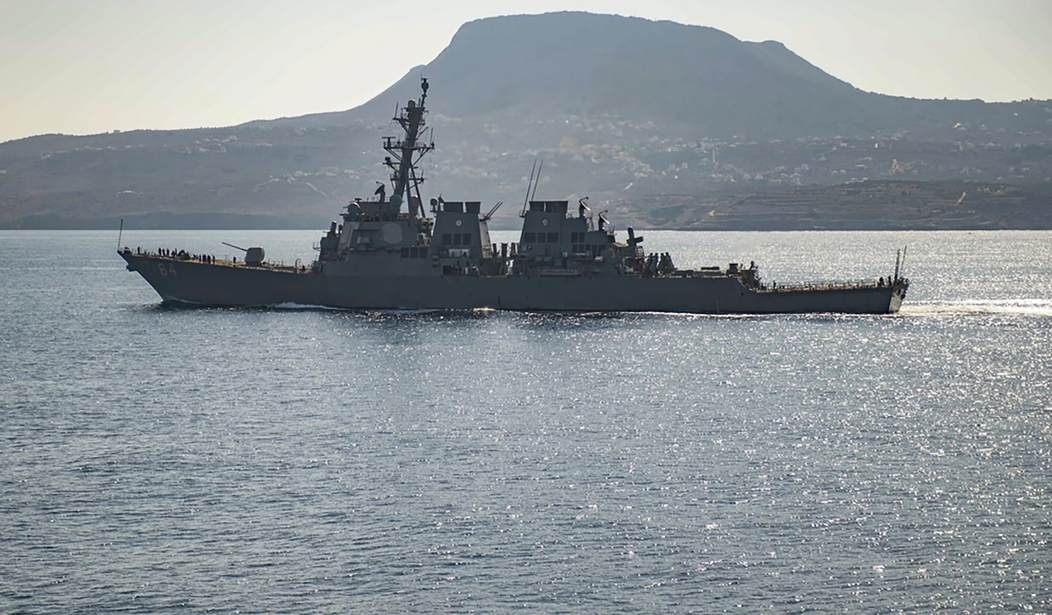Days after Iran-backed militants killed three U.S. service members in Jordan, Washington finally decided to strike back in a series of airstrikes on Friday. But will this be enough to deter future attacks against U.S. soldiers in the region or merely a display of political theater?
The barrage of strikes hit over 85 different targets, which included command and control headquarters, drone and ammunition storage facilities, intelligence centers, and others that belonged to the militias.
General Wesley Clark, former NATO Supreme Allied Commander, commented on the airstrikes, criticizing the Biden administration for not taking stronger action against the militants during an appearance on CNN. He explained that the White House’s decision to telegraph the locations where the strikes would take place was ostensibly intended to “avoid excessive casualties” but also noted that they “didn’t really deter Iran’s hostility to the United States.”
“I think this is in keeping with the way the administration has worked this. So, yes…85 aim points, but maybe we can avoid excessive casualties among these groups, let them know we’re coming. If they evacuate, they’re not going to get all of the heavy equipment out. And we saw earlier the video of the ammunition dump that was hit with rockets flying everywhere. So, they can’t quickly do that, but you can move out people and families that have been there and you might be able to reduce the losses on the other side, and, at the same time, send a strong warning. And I think that was the intent of the administration.”
Clark also predicted that the Iranians will continue their attacks on U.S. military forces in the region.
“[T]he Iranians are going to come back and do something. My guess is, it will take a few days, several weeks before they can reconstitute these forces. And then, depending on what happens in Gaza, they’ll be back. So, we didn’t really deter Iran’s hostility to the United States. We took a middle-of-the-road approach to this, we showed U.S. power. But you can be sure that, on the terrorist websites and in their communications, they’re sort of laughing, yeah, they gave us a lot of warning and yeah, we got all the people out and some of the bombs missed and blah, blah, blah, because that’s the kind of the bravado that you expect from some of these people. What we’re going to do is being — is collect hard intelligence, and see if we have to go back in and re-strike.”
During another interview with NewsNation, Clark argued that the airstrikes “should have been heavy enough to dissuade the militia groups and Iran from continuing their policy of these pinpoint strikes on American installations in the region.”
Others have criticized the Biden administration’s decision to give advanced warning before carrying out the airstrikes. RedState’s Andrew Malcolm minced absolutely no words:
The president of the United States, who for years illegally kept Top Secret documents in his garage, has intentionally alerted Iran, the world’s largest exporter of terrorism, to the details of his retaliation plans.
As a result, in the next little while, if not already, our highly-trained volunteer pilots and/or special operators can head out in their country’s service to avenge fallen comrades in the firm knowledge that their commander in chief has told the enemy their targets and when they might be arriving.
That should give the targets plenty of time to hide their equipment and themselves, ensuring that the "retaliation" is nothing but a PR stunt.
RedState’s Streiff also chimed in:
This attack was just National Security Theater. The airstrikes didn't make our troops safer or the jihadis less dangerous. It was a publicity gimmick to show the people swooning over the economic miracle that Bidenomics has brought about that Joe Biden is one tough hombre not to be trifled with. No one in the White House believed this would have any positive impact. The intent was not to punish the Iranian militias, deter them from future attacks, or even degrade their ability to plan and execute attacks. It was simply a crude attempt at creating an election-year narrative.
If this was nothing more than a PR stunt, then it makes sense that Clark would predict future attacks on U.S. service members. After all, if the United States is willing to go this soft on those who attack its soldiers, then why would these groups stop?

